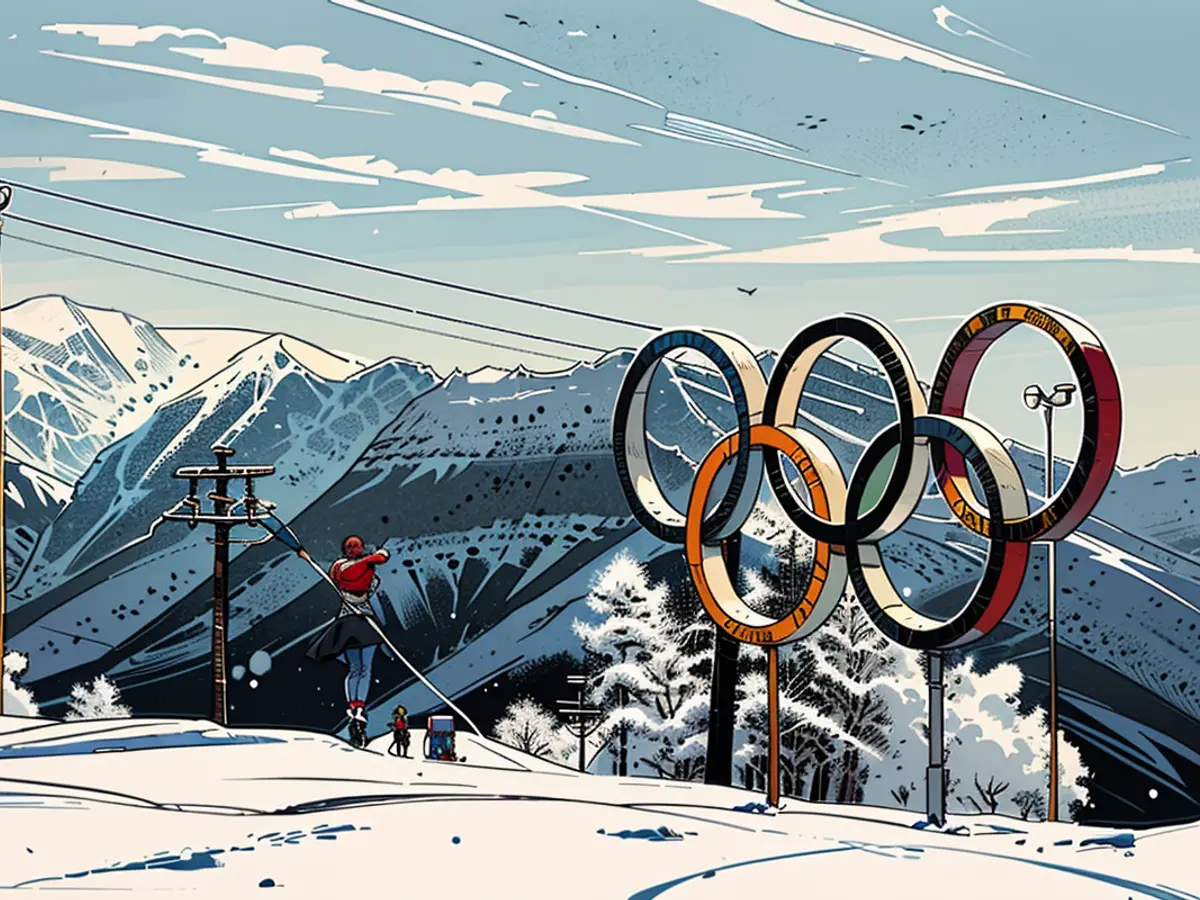The IOC awards Winter Games to France and the USA
The Olympic Winter Games 2030 will take place in the French Alps. The International Olympic Committee (IOC) granted the bid as expected, but with a reservation. In 2034, it will be back to the USA, to the site of the 2002 Winter Games.
The French Alps will host the Winter Games 2030, with Salt Lake City set to be the host four years later. The IOC made this decision at its General Assembly before the Summer Games in Paris. The IOC's approval for France, however, came with the condition that the government and local authorities guarantee the financial and organizational commitments that are still open. The host contract will only be signed by the IOC once these conditions are met.
Both bidders, who will also host the Paralympics, were considered a foregone conclusion before the 142nd IOC Session. There were no opposing candidates in the vote. The preferred candidates were announced in November. The IOC leadership had recommended the approval in June at the General Assembly. Salt Lake City in the US state of Utah is hosting for the second time after 2002.
France already has ample Olympic experience. Winter Games have been held in Chamonix (1924), Grenoble (1968), and Albertville (1992) in the French Alps. Paris is hosting for the third time after 1900 and 1924 as a Summer host.
The Winter Games 2030 are planned in the regions Provence-Alpes-Côte d'Azur and Auvergne-Rhône-Alpes. Several ice competition events will take place in Nice. The concept primarily involves the use of existing competition venues.
Climate change is set to drastically limit the number of bidders in the future.
Due to the political turbulence in France and the advanced parliamentary elections, the necessary guarantees from the government and authorities for the Winter Games project have been delayed. Currently, there is only an interim government. French President Emmanuel Macron will only appoint a new prime minister after the Olympics. In the National Assembly, no political faction has a majority after the election two weeks ago.
David Lappartient, head of France's National Olympic Committee, had previously assured: "Even if there is no majority in the parliament, there is a strong majority for the Games." IOC President Thomas Bach confirmed: "We would not vote if we didn't feel this way." Macron reiterated during the presentation on the IOC stage: "You can trust us, we will be there."
The next Winter Games in 2026 will be held in Milan and Cortina d'Ampezzo, Italy. The Swiss bid, according to the IOC's will, will have priority for 2038 if they reapply. The Swiss bid, like the US bid, received an early rejection from the IOC selection commission. A German Winter Games bid had previously failed with Munich for 2022 due to public opposition.
Long-term, the Winter Spectacle is a problem area for the IOC due to climate change. Only ten countries are expected to still be snowy and icy enough for Winter Games after 2040, according to calculations by researchers.
The French Alps, with its Olympic history dating back to Chamonix in 1924, was chosen by the International Olympic Committee (IOC) to host the 2030 Winter Games. Despite Germany's historical involvement in the Olympic Games, initially in Berlin for the 1916 Summer Games (which were cancelled due to World War I), the country did not put forward a bid for the 2030 Winter Games.








